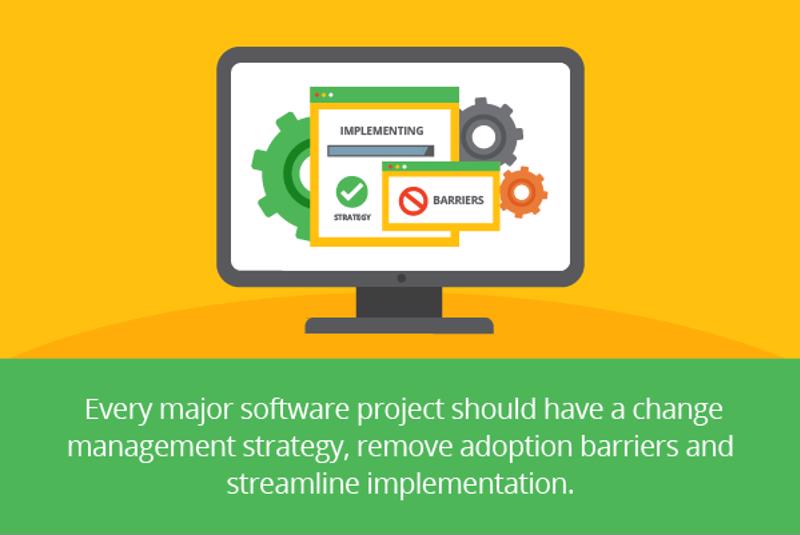Keeping your supply chain in pristine condition — removing bottlenecks, improving end-to-end visibility and synchronizing different departments and business units — is critical for sustained success. Organizations that rely on their supply chains to maintain fundamental business operations understand this, which is why they continually invest in their supply chain and look for ways to improve it.
One of the bigger tech trends in recent years is to transition to cloud-based platforms, and that includes supply chain management solutions. Cloud-enabled supply chain management software offers a number of benefits, but it’s important to consider the logistics of any implementation project of this scale.
Whether you’re looking to move to the cloud, replace your product management platform or completely overhaul your ERP environment, you need to account for the impact that such a shift will have on the organization. Every major software project should have a change management strategy to achieve stakeholder buy-in, remove any adoption barriers and streamline implementation.
Clear communication is key
Regardless of how incredible your new supply chain management platform or other software solution will be, there are likely going to be some employees who will push back. Change isn’t always easy, especially for staff members who have grown accustomed to doing things a certain way over the years, even when that approach is outdated, inefficient and more stressful.
For projects involving supply chain software, organizations may get the most resistance from their IT department. In many cases, cloud supply chain management implementation projects remove the burden of certain tasks from IT’s shoulders and gives business users the tools to carry out these jobs themselves.
That should be great news for the IT department, but employees may be uneasy about the prospect of handing over tasks they have always done for other workers. Cloud migrations that include some manner of end user self-provisioning could further exacerbate such anxieties. IT staff may feel like a core job responsibility is being taken away from them and that their employment is in potential jeopardy.
In reality, such changes give IT staff more time to focus on tasks that are less mundane and repetitive and serve a strategic purpose for the business. They have more opportunities to take on engrossing work that will fuel their creativity.
That kind of message needs to be clearly communicated to all employees who will be impacted by a new project to ease any anxiety they may be feeling. Once you have buy-in from the staff members who stand to benefit most from supply chain enhancements, it will be much easier to implement the solution and encourage widespread adoption.

Don’t rush into anything
In a perfect world, supply chain improvements would happen overnight. The reality of the situation is that these projects are so complex, with so many moving parts, that any implementation will take several months, if not longer, to complete.
In some cases, the people and processes that make up an organization need time to acclimate to new workflows. Does that mean project stakeholders can be passive and wait for people to come around? Not at all. Actively educating staff about upcoming changes to your supply chain operations is extremely important. Answer questions, address potential misunderstandings and hold training sessions.
Depending on how drastic of a change the new solution will be, employees may require a lot of assistance to familiarize themselves with it. They may be used to software, interfaces and workflows that have not been updated in several years, so the training process could be long and arduous. A piece of software is only as good as the people using it, so be sure you prepare them accordingly.
Any supply chain management investment is a pretty significant undertaking. If you want to get the best results out of these projects, you need to make change management an important part of your implementation strategy. Contact our team today to find out more.
